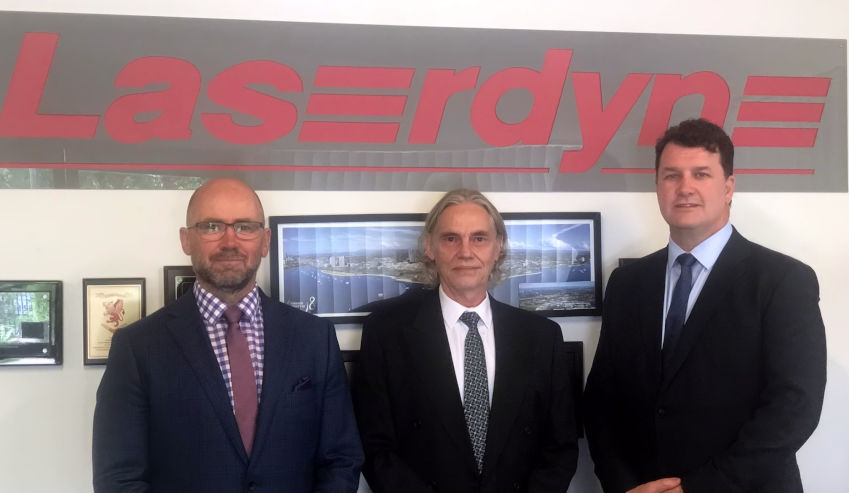Queensland’s LaserDYNE Technologies has been selected by Saab Australia as a supplier for a key subsystem offered as part of BAE Systems' AMV35 vehicle for LAND 400 Phase 2.
Under the partnership, LaserDYNE will supply its RangePRO laser transceiver within the Saab Universal Sight and Fire-Control System (UTAAS). UTAAS is a sight and fire-control system for tanks and combat vehicles that provides high hit probability against all ground targets, helicopters and fast-moving aircraft.
It is currently in service in Sweden, Norway, Switzerland, Finland, the Netherlands, Estonia and Denmark, all with BAE Systems’ Combat Vehicle 90 (CV90).
"Our company is pleased and proud to be selected by Saab as the supplier-of-choice for the laser transceiver in the Saab UTAAS system. This selection gives LaserDYNE the opportunity to supply Australian-designed, developed and manufactured technology product into export markets," said LaserDYNE chief executive Tim White.
"We look forward to working with Saab and providing our unique, advanced digital range-finding technology into such current programs as LAND 400."
Managing director of Saab Australia Andy Keough said its partnership with LaserDYNE is just one of the options it is exploring as it looks to engage with more Australian companies.
"Engagement with Australian industry is a key part of Saab’s long-term commitment to Australia and the selection of LaserDYNE as a key supplier for UTAAS is the first of a number of opportunities for Australian businesses that we are exploring within the Saab global supply chain," Keough said.
BAE Systems is competing against Rheinmetall to secure the project. BAE Systems has offered the AMV-35 with a commitment to build the vehicles in Victoria, while Rheinmetall has offered its Boxer CRV and has promised to build them in Queensland.
In recent weeks, BAE Systems has announced it has signed a memorandum of understanding (MOU) with the University of Melbourne, offering its students the opportunity to do graduate placements, internships and research and development (R&D) activities at its proposed state-of-the-art manufacturing and innovation centre at Fishermans Bend.
A new campaign by the state's Labor government was also launched recently, including billboards throughout Canberra aiming to promote the strengths of Victoria’s defence industry and record in manufacturing military vehicles.
The LAND 400 Phase 2 project has become highly politicised over the past few months, with accusations that the project will come down to pork-barrelling in marginal seats.
Victoria's acting Minister for Trade and Investment Ben Carroll said the state is fearful the decision will be based on political point-scoring rather than merit.
"We’re fighting hard for Victorian jobs – we have the skills and proven track record needed for this critical project," Minister Carroll said.
"This is an opportunity for Malcolm Turnbull to repair some of the damage his party caused when they abandoned Victoria’s auto workers.
"This decision should be made in the best interests of our defence force, our troops and our country. It should not be made in the best interests of Malcolm Turnbull’s political career."
The state government has also argued the recent dumping of Victoria's federal MP Darren Chester as infrastructure minister in favour of Queensland's John McVeigh has put the LAND 400 Phase 2 project at risk of being jeopardised by political interests.
"The Andrews Labor government has grave fears that Malcolm Turnbull’s dumping of Victorian Nationals MP Darren Chester paves the way for Victoria to be frozen out of the vitally important LAND 400 Phase 2 defence contract," Minister for Trade and Investment Philip Dalidakis said in December last year.
"The LAND 400 contract is crucial to our national interest and instead of being awarded on merit, it looks increasingly likely that it will go to Queensland as a naked pork-barrelling exercise designed to help save Coalition seats at the next federal election."
Victoria's defence sector is estimated to be worth $8 billion to the local economy every year, and is made up of about 20,000 people and more than 400 businesses.
Under the project, which is worth up to $5 billion, the state government has estimated 2,000 jobs will be created.






